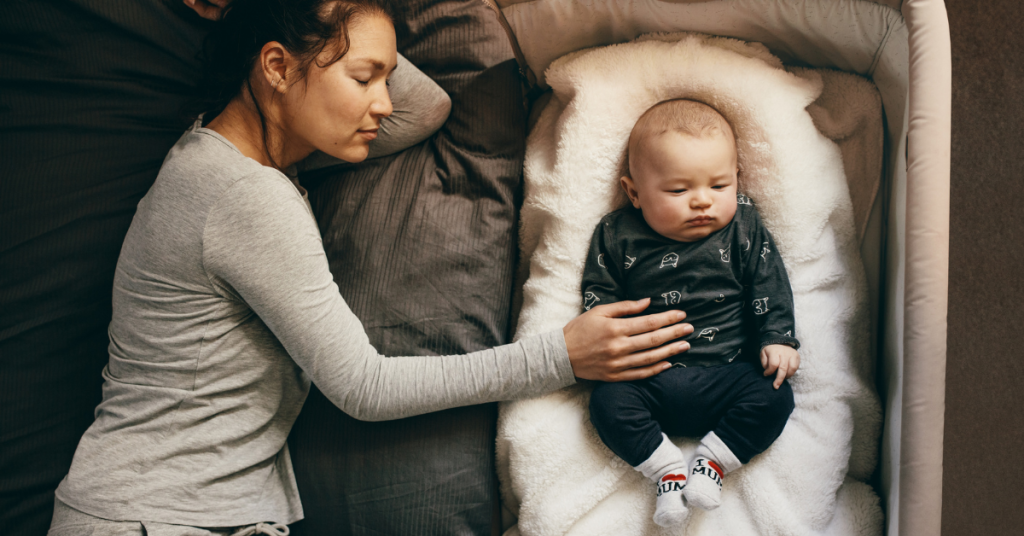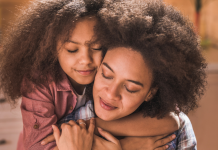 Sleep training. A supercharged word in the minds of sleep-deprived parents. This is a story of why I decided not to sleep train my second child, as I had with my first. A decision was made at the crossroads of my maternal instinct with my career as a trauma therapist.
Sleep training. A supercharged word in the minds of sleep-deprived parents. This is a story of why I decided not to sleep train my second child, as I had with my first. A decision was made at the crossroads of my maternal instinct with my career as a trauma therapist.
My firstborn began “sleeping through the night” at 10 months old. This felt like forever at the time. My husband and I used a method suggested by a sleep training specialist. It went against every momma instinct of mine to not pick my daughter up and soothe her to sleep. But I kept telling myself that holding out was the right thing to do. Sleep training seemed like the only way to achieve the coveted full night of deep rest that I longed for.
With my second born, I eagerly anticipated that by 10 months he surely would be sleeping through the night. Many of my friends had babies who had been sleeping through the night long before that age. He should be able to, right? He’s capable, isn’t he? Or were my expectations for infant sleep unrealistic?
When 10 months came and went with my baby still waking up I thought to myself, ‘Am I really going to sleep train again?’
Rewind several years, just before my first baby was born. I took a deep dive into trauma-focused psychotherapy to narrow down my career as a mental health therapist. In this time I studied the impact trauma has on mind and body for both children and adults. I gained much deeper insight into trauma through the lens of the nervous system. The information I came to understand changed my perspective on sleep training. It reinforced my personal belief to not turn against my instincts like I had with my first.
I decided to not sleep train.
You see, The Autonomic Hierarchy, an organizing principle of Polyvagal Theory, offers an understanding of the autonomic nervous system. According to Polyvagal Theory, when there are enough signals of safety and our needs are met, we feel safe and connected to ourselves, others, and the world around us.
However, when our body senses signs of danger our autonomic nervous system initiates a predictable survival response and drops into a sympathetic state. The sympathetic nervous system is responsible for fight or flight.
Rather than soft cries or coos, an infant in fight or flight will let out loud, angry screams.
We can think of an infant’s anger as a life-supportive response intended to impact its environment. In other words, the infant is trying to get its needs met.
If our efforts to get our needs met through our fight or flight response are unsuccessful, our body automatically drops into dorsal vagal immobilization. In this state, the body shuts down as an emergency response and begins to focus on conservation and survival. Rather than on connection and engagement with others. This is generally the point at which we assume the baby has exhausted themselves to sleep.
Polyvagal Theory suggests that our nervous system is shaped by early experiences.
Infants cannot self-regulate. They require the consistent presence of a reliable, caring other to soothe their nervous system through co-regulation. A chronic lack of regulatory support is experienced as overwhelm on their nervous system.
According to Laurence Heller, Ph.D., author of Healing Developmental Trauma, “Symptoms of undischarged sympathetic activation develop, leaving children, and later adults in states of high arousal, anxiety, and irritability, prone to temper outbursts, fearfulness, and even panic attacks.”
However, the good news is that our nervous system can be reshaped with ongoing experiences. New patterns can be created over time.
As an exhausted, bleary-eyed, postpartum mom of an infant and a toddler, wrapping my head around this information was a hard pill to swallow. I so desperately wanted there to be an easier answer.
Yet, there was a reason every cell in my body resisted sleep training.
For me, leaning into this decision to not sleep train the second time around felt like the right thing to do. I won’t say it’s been a well-rested road. However, in some majestic way, the body does seem to adapt to the wake-ups and somehow, you just keep carrying on.
I do not judge my past self, or any other parent, for deciding to sleep train. Science itself is constantly evolving. There are always points to be made on either side. Ultimately, respecting my instinct to soothe my crying baby has been the most aligned choice I could make at this stage of my parenting journey… even if the bags under my eyes tell the tale.









